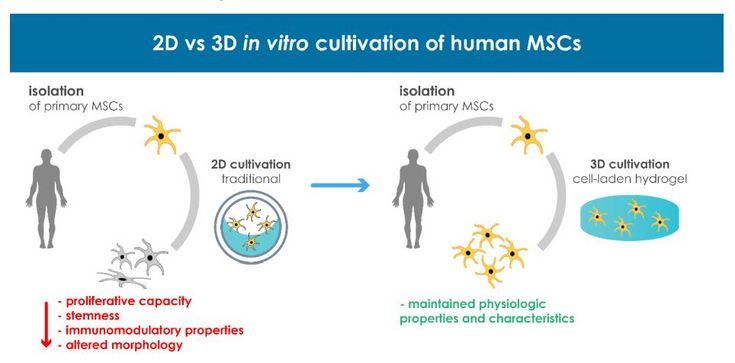Development of Cellulose based hydrogel scaffolds for 3D in vitro cultivation of human MSCs
SUPERVISOR: Cornelia KASPER
PROJECT ASSIGNED TO: Ilias NIKOLITS
Biomaterials are natural or synthetic engineered substances involved in medical applications to assist therapeutic or diagnostic processes of biological systems. As a major element in tissue engineering, biomaterials aim to serve as in vitro substitutes of the natural extracellular matrix. The combination of cells and tissue engineered biomaterials in vitro aims generate artificial tissue substitutes which can serve either as implants for the restoration of damaged and lost tissue, or as in vitro diagnostic platforms for drug testing and disease modelling.
Cell-based therapies are one of the most promising strategies in regenerative medicine and mesenchymal stem cells (MSCs) are among the most investigated and potent types of cells in regenerative medicine. MSCs are highly proliferative multipotent stromal cells that can differentiate into a variety of mesodermal cells. It is true, that when MSCs are cultured in vitro in traditional 2D culture systems, they gradually lose their differentiation and proliferative potential and their immunogenicity is altered. However, the physiologic functionalities of MSCs can be maintained when cells are cultured in 3D using cell laden biomaterials.

In tissue engineering several biological and synthetic materials have been tested for 3D culture of different types and origins of cells, but as D.F. Williams (Biomaterials 2014) stated, “there is no such thing as a biocompatible material”. That means there is no “universal” biomaterial that can serve as an ideal in vivo substitute for all cells and that in order to elicit the desired effect in vitro, the ideal combination between cell types, biological activity and material must be identified.
A very intriguing group of 3D biomaterials, defined by their ability to absorb large amounts of water and maintain their structure, are hydrogels. Hydrogels were one of the first biomaterials studied for biomedical applications due to their attractive properties, namely high biocompatibility, oxygen permeability, cell adhesion, tissue-like physical properties, moldability and ease of property tuning.
Among the many different materials investigated for biological applications, cellulose is an abundant, cheap, and biocompatible material. In addition, its tunable chemical, mechanical and physical properties make it an excellent biomaterial candidate.
In this project cellulose-based hydrogel scaffolds with appropriate characteristics are synthesized and evaluated towards their suitability to support physiological 3D culture of human MSCs in vitro, employing different cultivation methods and parameters (e.g., normoxia/hypoxia, static/dynamic cultivation).

